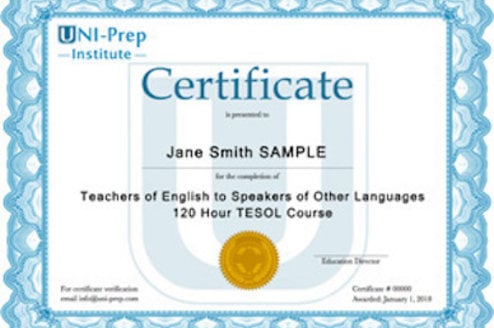Teach English in Switzerland
Teaching Programs in Switzerland
About
Switzerland – the land of chocolate, cheese and cuckoo clocks. The beauty of this country lies not just in its wonderful produce, but in its cultures, geography and economy. Switzerland is well located in the cradle of its neighboring countries of France, Italy, Germany and Austria. This not only provides easy access and limitless holiday ideas, but it also means that Switzerland is a blend of multiculturalism and colors.
If the idea of learning several languages while you teach your own does not tempt you, then perhaps the possibility of spending cold winters skiing down one of the greatest mountain ranges in the world, or whiling summertime away sailing and swimming in one of Switzerland’s gorgeous lakes, will. With so much to offer, Switzerland will definitely leave you with an unforgettable teach abroad experience.
Job Types
Private Language Academies/Schools:
During the academic school year, clients of language schools usually come from local businesses and during summer the schools are open to international students. Language schools often try to be as flexible as possible for their clients. This means that there are few limits to their timetables – courses can be anything from a week’s intensive course to 2 hours a week for more than year. You can teach small or large groups, at the client’s office or in school or mixed levels.
The timetable is built around client’s requests and highly variable and fragmented. The starting hourly rate can be as low as USD 15.08, and can rise to USD 60 per hour. As can be seen, working conditions in language schools are not the best. However, this is a good starting ground for inexperienced teachers who are comfortable with change.
Institute of Higher Education:
These can be state or private institutions, and often have an English language department attached. However, they have regular staff who are permanent and highly qualified. Vacancies are rare but if you plan to stay long-term, it is worthwhile to network and wait for an opportunity to arise.
Private Finishing Schools:
These schools are often small single sex schools, and have a wealthy international clientele. Full time positions with paid vacations are available, as teachers are occasionally required to accompany students on overseas excursions. Teaching equipment is modern and plentiful and classes are often intensive and challenging.
Hotel Schools:
English is central to hotel schools’ curricula as all courses are taught in English. Hotel schools thus offer a variety of English language classes to cater to students with sub-par English language skills. With a monthly salary of USD 2261.55 to 3015.40 per month for 22 to 25 hours a week, hotel school teacher salaries are sufficient for you to both work and save. Working hours are between 8am to 6pm, and timetables are fixed. However, hotel schools usually offer semester contracts, although full-time, permanent positions are sometimes available.
Private English Lessons:
Be aware that as a private tutor, Swiss law requires you to pay social insurance and taxes on the amount you earn. Lessons are worth what you can sell them for – the average rate is around USD 63.81 per hour, and can be as low as USD 31.90 per hour to as high as USD 127.62 for 45 minutes including travel expenses.
Find a Job
When and Where to Look for Jobs:
The English language teaching market in Switzerland is mostly freelance, so positions become available at short notice all year round. Positions for English language teachers in Switzerland are advertised frequently however, and to improve your chances, you can join an English language teachers’ association.
The best way to get ahead of the game is to network and learn best practices, keep up to date with teaching material and do a top-up training course through the English Teachers’ Association of Switzerland. A number of private language schools advertise open positions on the ETAS website, and the ETAS website provides a wealth of information on finding EFL jobs in Switzerland. Additionally, local papers and jobsites such as Jobclick offer job listings as well.
Zurich has the greatest number of private language schools, although its economy is faltering, Additionally, majority of schools in Switzerland are teacher-owned, thus they are relatively small and numerous.
Qualifications:
Depending on who you work for, the qualifications you require vary greatly. Language schools often do not require qualifications as there is no financial security. Many however, offer in-house training on their teaching methods and provide modules for the different courses. This would benefit inexperienced, new teachers but may prove frustrating for teachers with experience under their belt. With some experience, a degree and a TEFL certificate, it is worthwhile to work for an institute of higher education, a private finishing school or a hotel school. The long-established and famous Lausanne hotel school for example, has excellent working conditions and gives high courses yet only requires a teacher to have a degree and three years' teaching experience.
That being said, a qualification that is required across the board is a work permit (“B” work permit). To get a work permit you need to be qualified for the job and to have secured a work contract. Permits are in short supply and can take up to three months to come through, depending on the region you want to work in. Many language schools refuse even to try to get permits for teachers and prefer to employ anyone who speaks English and already lives here, regardless of his or her qualifications. However, there are many different types of schools where teachers of English as a foreign language can find work and gain permits.
Need to Know
Salary & Cost of Living:
For all of Switzerland’s natural wonders and scenery, beauty does come at a price. Cost of living in Switzerland is among the highest in the world, with the cities of Zurich and Geneva ranked second and third most expensive, respectively. The minimum wage is Switzerland is USD 2658.72, which is barely enough to cover the essentials of daily life.
However, the Swiss do love to do business and fill up their bank accounts. This is where English (and you, as an English teacher) comes in. Swiss children and businessmen alike are eager to learn English – the international language o f money. Private tutors for partners who work in the IT, banking or another business sector will find that your salary is enough to work and save if a 42-hour week, 4 weeks’ holiday and not many bank holidays do not put you off.
Salaries vary greatly depending on where you work at, thus it is important to know what you want and choose wisely. Many EFL teachers work for several schools in order to keep up with Swiss living standards. Schools which do not require a TEFL/TESOL qualification have been known to offer the lowest rates at USD 21.27 per hour, while teachers with a TEFLA qualification can expect to be paid USD 31.90 – 47.86 per hour. Teachers with a TEFLA qualification and experience teaching in business or examination preparation can expect an hourly wage of USD 53.17 to more than 74.44.
Classroom & Work Culture:
Be prepared to feel stifled or unhappy at times, as Switzerland’s work culture is very hierarchal. The rule of thumb is to not question or doubt your boss! Negotiating anything from salary to hours conditions can often lead to teaching hours being reduced or promised contracts being cancelled. Only the highest individuals in authority make final decisions regardless of others’ dissent. The different management styles will likely take some getting used to, but till then, keep calm and tread carefully!
Shaking hands with everyone present is common courtesy and always address others by his or her professional title and family title. Swiss society is rather formal, so first names are reserved for very close friends and family. The Swiss’ propensity of privacy also means that as much as you want to get to know your students and colleagues, it would be better to avoid asking personal questions to do with age, marital status, religion, etc., till a good relationship has been established. English is also the language of business, and one’s appearance should always be clean and neat! The Swiss value cleanliness, punctuality and respect, so make sure you live up to their standards!























